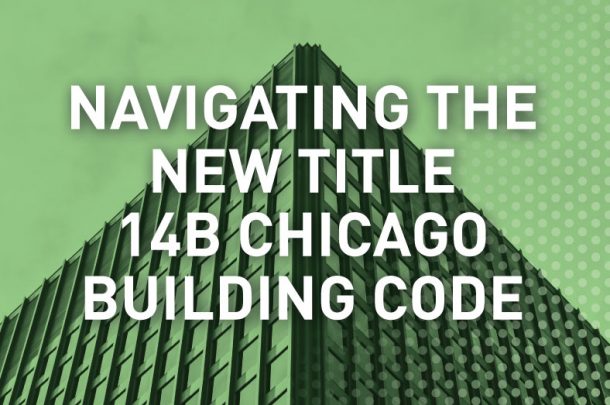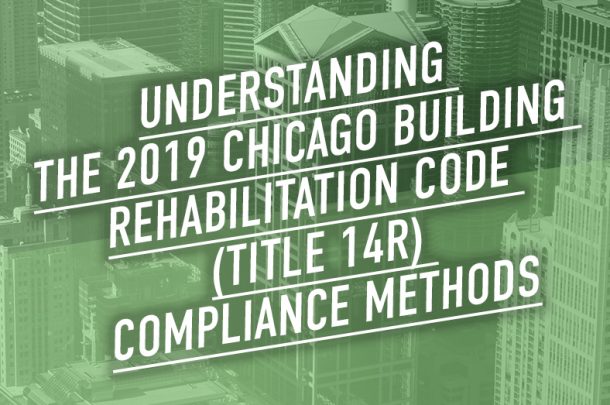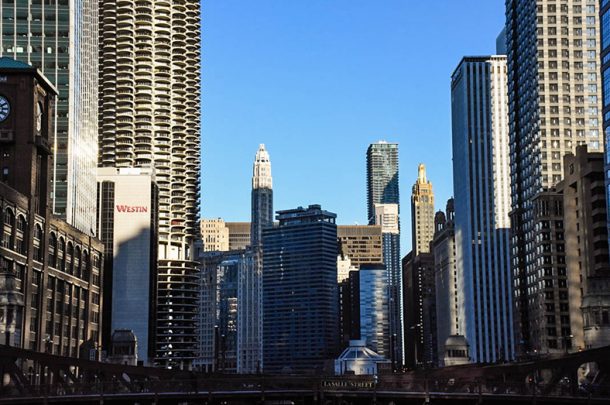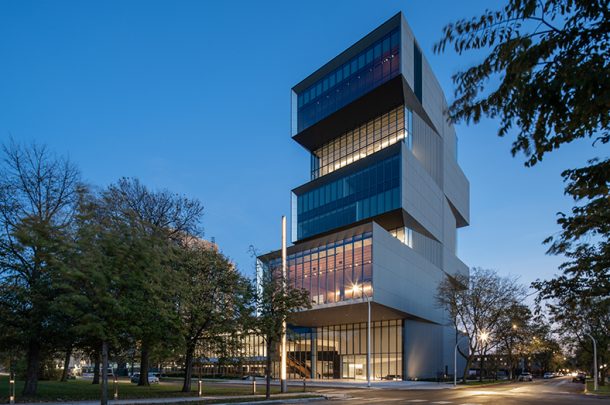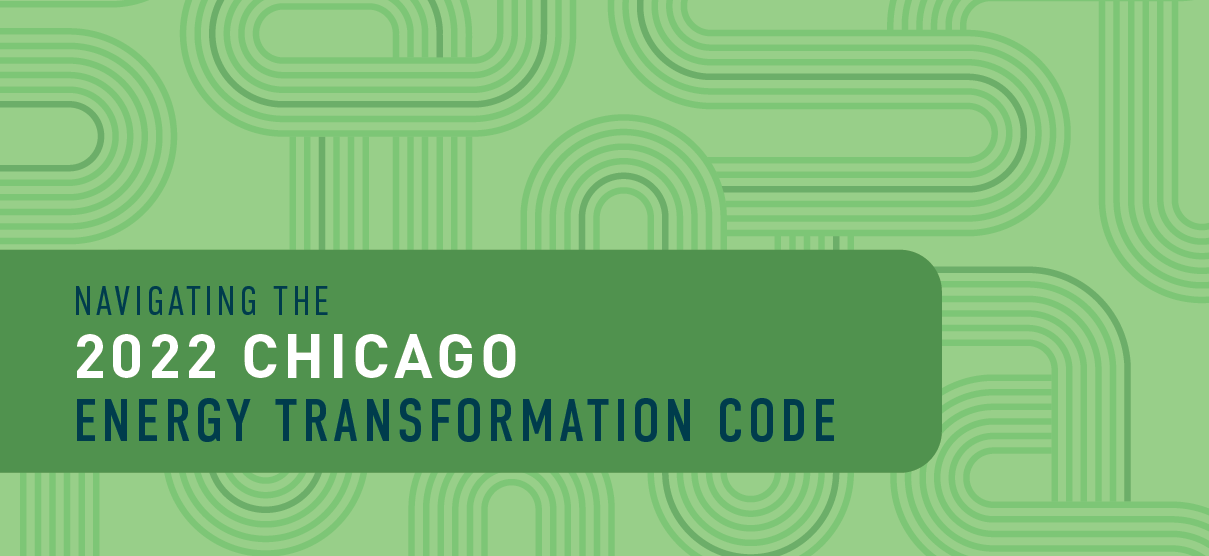
The 2022 Chicago Energy Transformation Code was passed by the Chicago City Council on September 21, 2022, replacing the 2019 Chicago Energy Conservation Code. In short, what this means for your project is if you applied for a building permit on or after November 1, 2022, the new code applies, with additional requirements taking effect on January 1, 2023.
In comparison to the 2001 ordinance, the new energy code will improve energy efficiency by 40% for residential and commercial buildings.

The hope with the new code is that designers not only learn from past lessons but will also harness this progressive framework to maintain the “Chicago” build and design character for years to come. This article will cover some of the key highlights and changes that you can expect to see with the new code.
Top 5 Key Advancements of Chicago’s New Energy Transformation Code
Improving the City’s Decarbonization Commitments
- Electric-Ready Residents
- New residences with gas fired appliances will need to be built with electrical capacity and wiring necessary to switch to electric appliances in the future without opening walls or upgrading the electrical service.
- Solar-Ready Commercial
- New low-rise commercial buildings (i.e., warehouses), would be required to be designed and built to support current or future solar panel installations.
- Smart Technology
- The proposed code will incentivize the use of smart heating and cooling equipment that is grid-integrated to reduce demand during peak times.
- Alternative Compliant Paths
- Two building standards will be recognized as alternative compliance paths. The 2021 Phius Standard and the Gold and Emerald certification levels for the 2020 National Green Building Standard (NGBS).
- Both programs require pre-construction reviews and post-construction verifications by independent third-party reviewers, which will supplement the City of Chicago Department of Building’s own building permitting and inspection process.
- Additional
- Requires placement of windows in new buildings to minimize energy demands due to solar heat gain in summer.
- Requires improved insulation to reduce heat loss through the exterior walls of buildings with projecting balconies or parapets.
- Requires indoor plant-growing facilities to use energy-efficient lighting.
- Prohibits new decorative gas lighting[1]
More on Options for Compliance Certification (Chicago)
The 2022 Chicago Energy Transformation Code provides flexibility for builders who chose to use one of two leading building certification programs for compliance certification: the Gold and Emerald Certification levels for the 2020 National Green Building Standard (NGBS) and the 2021 Phius Standard. The NGBS is the only residential green building standard developed through a consensus process and approved by the American National Standards Institute. The Phius Standard, also known as the “passive building” standard, is maintained by a Chicago-based non-profit and is broadly accepted throughout the U.S. for balancing hard-line energy and carbon reduction targets with cost-effectiveness.
Potential Pitfalls of Non-Compliance (Chicago)
Every project that is under permit with the City will be required to identify their level of compliance or exempt status from the new energy code. Depending on the project type, one of two forms will need to be completed: COMcheck for commercial use and REScheck for residential. Both platforms have been developed by the U.S. Department of Energy with the objective of specifically demonstrating compliance with nationally recognized energy codes.
This is also a self-regulated process; the City of Chicago does not officially review for energy code compliance. Forms are kept on record and, if incorrect or incomplete, can put your project at risk for liability. Thus, an in-depth understanding of the required code is essential. Without it, your project could easily fall out of compliance and become subject to citations.
There are two different code versions. If submitting for a project based in the City of Chicago, you will need to submit based on the Illinois Energy Code. If you are submitting for a project anywhere else in Illinois, you will need to use the Illinois State version. Note: The Illinois Joint Committee on Administrative Rules (JCAR), a bipartisan legislative oversight committee that conducts reviews of administrative rules promulgated by State agencies, has received all comments on the proposed updated version of the Illinois Energy Conservation Code (also based on the 2021 IECC). JCAR has conducted a public hearing in Springfield, and the updates should be in effect by the end of this calendar year. The Illinois version will be enforceable in all communities outside of Illinois.
Some additional advancements of the new code to take note of are:
- Thermal envelope maximum requirements have increased
- New requirements for tubular daylighting devices and skylights
- Roof assembly thickness has increased, and installation is clearly indicated
- Slab on grade insulation is mandatory
- Air barrier and leakage testing is now mandatory
- Reduced interior lighting power allowances are spelled out
- Requirements for automatic turn-off or reduced lighting in unoccupied spaces
- 50% of all receptables in office areas must be controlled
- 50% of exterior lighting are to turn off after hours
- Commissioning of all systems are to be integrated, including equipment, envelope, and systems/controls
For more detailed information and parameters, check out the official Ordinance from the City of Chicago, City Council.
We know it will take some time for our design and construction partners to familiarize themselves with these new critical changes, but here at Primera, we pride ourselves in providing our clients with high-level and innovative expertise. If you are interested in obtaining more in-depth code compliance information for your current or future project, don’t hesitate to reach out to Jill Deichmann, AIA, NCARB for assistance with navigating the new code and getting up to speed.
References
- https://www.chicago.gov/city/en/depts/mayor/press_room/press_releases/2022/june/EnergyTransformationCodeClimateChange.html#:~:text=Each%20new%20edition%20of%20the,compared%20to%20the%202001%20ordinance.
- https://illinoisgreenalliance.org/the-proposed-chicago-energy-transformation-code-explained/
- https://www.chicago.gov/city/en/depts/bldgs/provdrs/bldg_code/alerts/2022/july/energycode.html
- https://www.energycodes.gov
- https://smartenergy.illinois.edu/
- The updated code is also available as a free view-only version at: iccsafe.org
[1] Illinois Green Alliance, The Proposed Chicago Energy Transformation Code, Explained, illinoisgreenalliance.org, June 30, 2022
University of Illinois Smart Energy Design Assistance Center, Chicago Energy Transformation Code, smartenergy.illinois.edu


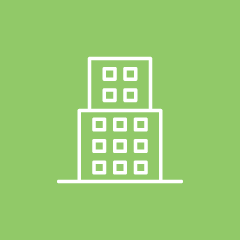




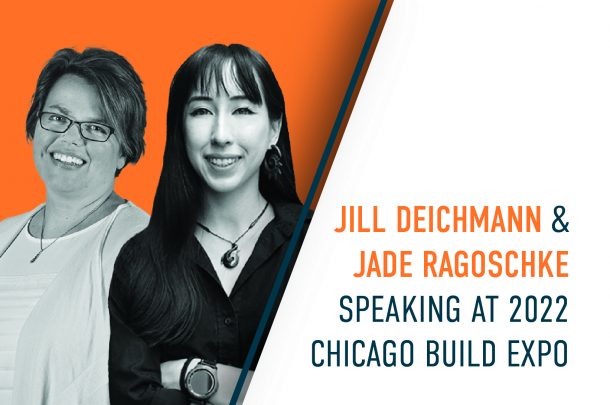
 Join Primera at the Chicago Build Expo 2022
Join Primera at the Chicago Build Expo 2022 
